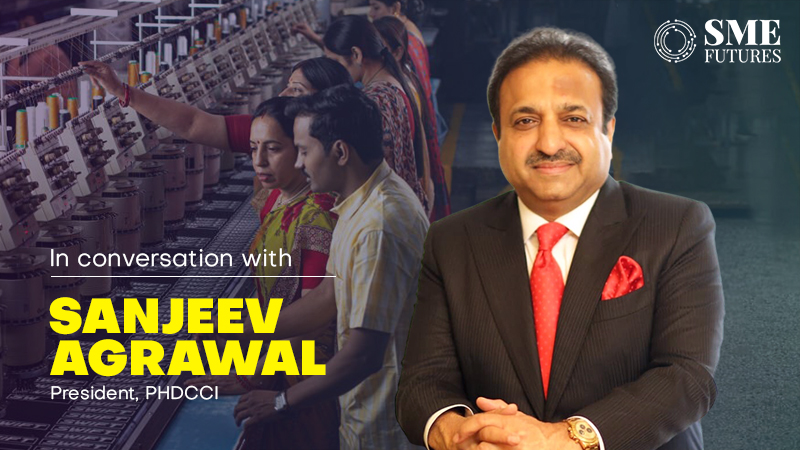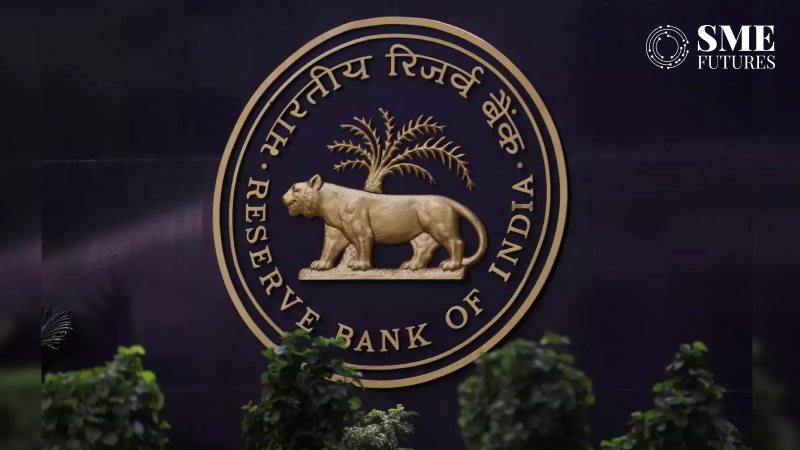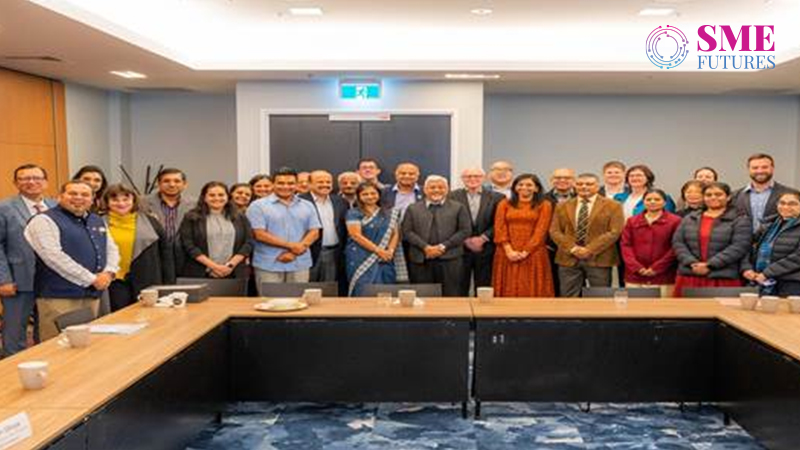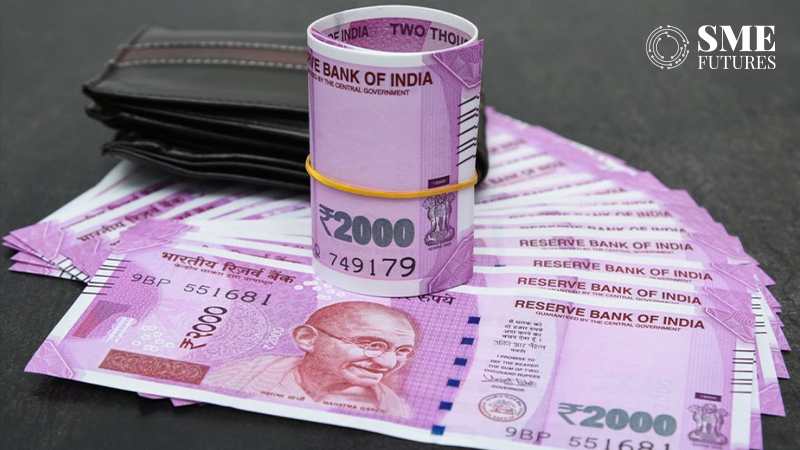Unlocking India’s MSME potential: Exclusive conversation with Sanjeev Agrawal, President, PHDCCI
Sanjeev Agrawal, the newly elected President of PHDCCI, shares his vision for fostering growth and resilience in MSMEs
Anushruti Singh November 15, 2023

MORE IN Interviews
Navigating the path to e-commerce success: Insights from trade policy expert
RegTech solutions can be a game changer in fintech regulatory scrutiny
From slum to CEO and now ‘Seema Aunty’ of Indian start-ups: Rahul Narvekar, The India Network
In a candid conversation with Sanjeev Agrawal, the newly elected President of PHDCCI, we delve into the challenges and opportunities faced by the Micro, Small, and Medium Enterprises (MSME) sector in India. With his extensive knowledge and vision, Agrawal shares insights on the path forward to foster growth and resilience in this vital segment of the Indian economy.
Edited excerpts:
In your opinion, what are the problems that MSMEs face in general, notwithstanding multiple initiatives?
According to a past research study “MSME Finance in India: Needs, Gaps and Way Forward” by IFC/World Bank Group in partnership with the Government of Japan, it was reported that “Although the MSME sector has been growing at a faster rate, they experience multiple constraints that threaten to derail the sector’s growth trajectory. These challenges are:
- Inadequate availability of credit and finance
- Poor infrastructure for growth and the setting up of new enterprises
- Inadequate market information
- Lack of availability of appropriate technology
- Inadequate skilled manpower
- Inability to procure raw material at competitive prices
These challenges have constrained the growth of the MSME sector, particularly the creation of new entrepreneurial ventures in the country, due to which, the creation of self-employment opportunities through the entrepreneurial route is highly restricted.
What is your plan for supporting MSMEs’ growth now that you have assumed the PHDCCI presidency?
We have established an MSME Facilitation Centre to help MSMEs thrive. This centre helps businesses and future entrepreneurs with information and assistance in establishing new business units. Some of the major areas in which we would like to support MSMEs are:
The Indian MSME sector has a significant demand for loans, estimated at around Rs. 32.5 trillion. However, access to loans for MSMEs is limited, and the cost of credit in India needs substantial reduction. Banks perceive MSME financing as high-risk and incur higher transactional costs, leading to their reluctance to increase exposure to MSMEs. The PHD Chamber aims to facilitate better access to credit by connecting MSMEs with banks and financial institutions.
The MSME Development Act, 2006 aimed to address delayed payments to MSMEs. It mandated that buyers failing to make payments within the agreed terms, or a maximum of 45 days would be liable to pay monthly compounded interest at three times the bank rate. The act also established Micro and Small Enterprises Facilitation Councils. However, the effectiveness of these councils over the past 17 years has been limited.
The PHD Chamber plans to advocate for strengthening the provisions for resolving delayed payments and improving the functioning of these councils. Additionally, they propose extending the coverage of medium enterprises under the MSME Facilitation Councils to settle delayed payments within a maximum of 45 days if no specific payment date is mentioned in the purchase order.
The RBI introduced a restructuring framework for banks and lending institutions to address the economic impact of the COVID-19 pandemic. However, this facility was restricted to MSMEs classified as standard on March 31, 2020. Subsequently, the RBI extended the restructuring facility with an increased limit for MSMEs classified as standard on March 31, 2021.
The PHD Chamber recommends the reintroduction of the restructuring scheme, expanding its eligibility criteria to include MSME accounts that became overdue or non-performing assets after the onset of the first wave of COVID-19 in March 2020, with a cutoff date of March 31, 2020. This would allow such MSME accounts to be regularized, ensuring uninterrupted operations.
What new initiatives will you be bringing to the table?
We will work on a variety of fresh concepts, and the following initiatives are proposed to be pursued:
Easing of Approvals/ Registrations and Compliances
Simplified and time bound clearances of all the required permissions should be given by all concerned authorities in the central as well as the state governments. The duplication of compliances should be removed, and their number should be reduced particularly in taxation matters and the Companies Act.
Labour Laws
While the government’s efforts to consolidate 44 Central labour laws into four codes are a significant leap toward simplification and streamlined document filing, it’s crucial that labour law reforms not only protect workers but also create opportunities for industry-worker engagement.
Currently, MSMEs grapple with a complex regulatory landscape and rigid labour markets that hinder business operations and limit growth potential. Providing greater flexibility to industries in determining worker employment terms, introducing options like voluntary Employees’ State Insurance or medical insurance coverage, simplifying laws such as the Employees’ State Insurance and Provident Fund, and eliminating restrictions on hiring non-local employees are desirable steps in this direction.
Improving Start-up India Ecosystem
The Start-up India scheme is an initiative of the Indian Government, the primary objective of which is the promotion of start-ups, generation of employment, and wealth creation. The definition of start-ups needs to be widened to include all start-ups and new business enterprises registered as MSMEs and all such new enterprises need to be given tax holidays and exemptions from filing returns for their first 3 years of existence.
The hosting of the G20 has added to India’s reputation as a viable investment location. However, what are the difficulties that act as a barrier to the ease of doing business in India?
With India’s ranking jumping up in the World Bank’s ‘Ease of Doing Business Rankings,’ it is gaining acceptance as an ideal destination for setting up businesses or manufacturing bases. The ease of doing business initiatives have favourably impacted the MSME sector also, but a lot more needs to be done to ramp up the contribution of this sector to the economy.
The government, along with other stakeholders from the ecosystem will have to work more towards addressing the pressing needs at the grassroots level which is represented by MSMEs.
The government has made several announcements to bring changes in policies to promote MSMEs and make their operations comparatively easier but, despite these changes and improvements and the overall jump achieved in the EoDB Index, Indian MSMEs still continue to grapple with many issues that are preventing them from realising their full potential.
India still lags in areas such as enforcing contracts (163rd) and registering property (154th). There are many other constraints and policy concerns with respect to availability of credit and its high cost, the requirement of seeking multiple registrations and approvals, higher taxation for proprietary and partnership concerns with cumbersome procedures, complicated labour laws and inadequate infrastructure etc., which need the urgent attention of the government and the other authorities to bring in real ease of doing business in the MSME sector.
The government has already begun developing budget recommendations. What are the PHDCCI memo’s recommendations?
First, we recommend the renewal of the Credit Linked Capital Subsidy Scheme (CLCSS). The scheme facilitated technology upgradation in MSMEs and provided capital subsidy of 15 per cent, with a maximum limit of Rs 15.0 lakhs, for investments up to Rs 1 crore in well-established and improved technology across 51 specified sub-sectors/products. The scheme aimed to enhance plant and machinery with state-of-the-art technology, with or without expansion, benefiting new MSMEs adopting approved technology. It was active until the fiscal year 2019-20 but has since been phased out.
The CLCSS scheme played a significant role in introducing technological advancements to improve the scale and quality of product manufacturing in MSMEs, promoting global competitiveness. Entrepreneurs across various sectors could benefit from CLCSS subsidies for new and expansion projects.
Technology upgradation is crucial for scaling up production capacities, enhancing global competitiveness, and fostering import substitution, especially in sectors like defence, railways, electronics, communications, pharmaceuticals, food processing, chemicals, machinery and more, aligning with the spirit of the Aatmanirbhar Bharat Abhiyan.
To incentivise MSMEs to adopt, upgrade, and implement eco-friendly technologies, we propose the following:
Continue the capital subsidy with an increased investment limit of Rs 2.0 crores, compared to the previous limit of Rs 1.0 crore set nearly 15 years ago. Alternatively, provide an interest subsidy of 5 per cent on credit availed by MSMEs for technology adoption and upgradation. This will help reduce the cost of credit for term loans used in technology upgradation.
Our second suggestion concerns taxation. While raising the GST exemption ceiling to Rs. 40 lakhs is a step in the right direction, it is only one of many tax breaks that the MSME sector requires. What the industry requires are tax cuts that would help them do business more easily. Exemption from the burdensome capital gains tax, as well as other tax exemptions, are critical for fostering a robust and dynamic MSME sector in India. Furthermore, MAT should be repealed or reassessed for MSMEs, and capital gains tax should be reduced to zero to stimulate investments in capital markets, increase market confidence, and encourage people to invest for the long term.
The recent cut in corporate tax rates for domestic companies should also be extended to proprietorships, partnerships and LLPs which are more than 90 per cent of MSMEs.
Third, section 54 of the IT Act, which grants an exemption on capital gain investments, should be expanded to encompass all investments made in industries/businesses from any type of capital gain created. Investments in start-ups made with capital gains are exempted in the 2019 budget. It is preferable that investments in all MSMEs made with capital gains be free from income tax.
Our fourth recommendation is the Interest Subvention Scheme for MSMEs. The initiative provided qualified MSMEs with 2 per cent annual interest relief on their outstanding fresh/incremental term loan/working capital during the scheme’s validity period, up to a credit ceiling of Rs 100 lakhs. The plan was only extended until March 31, 2021. This policy should be expanded further to provide respite from the RBI’s recent interest rate hikes.











